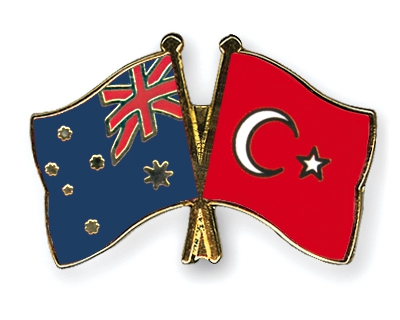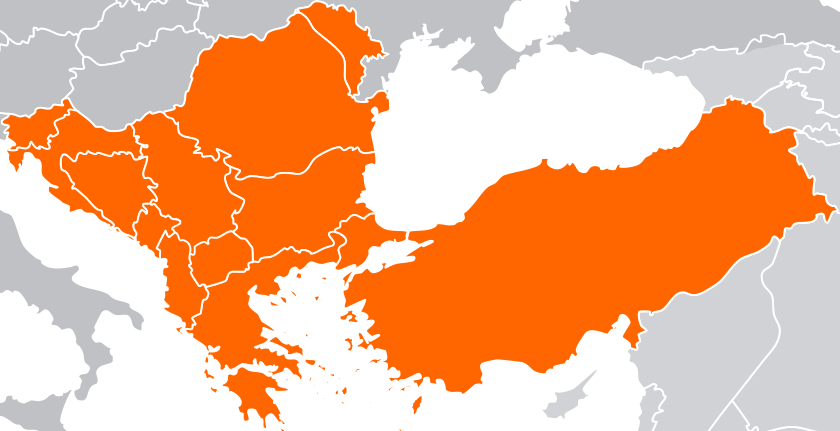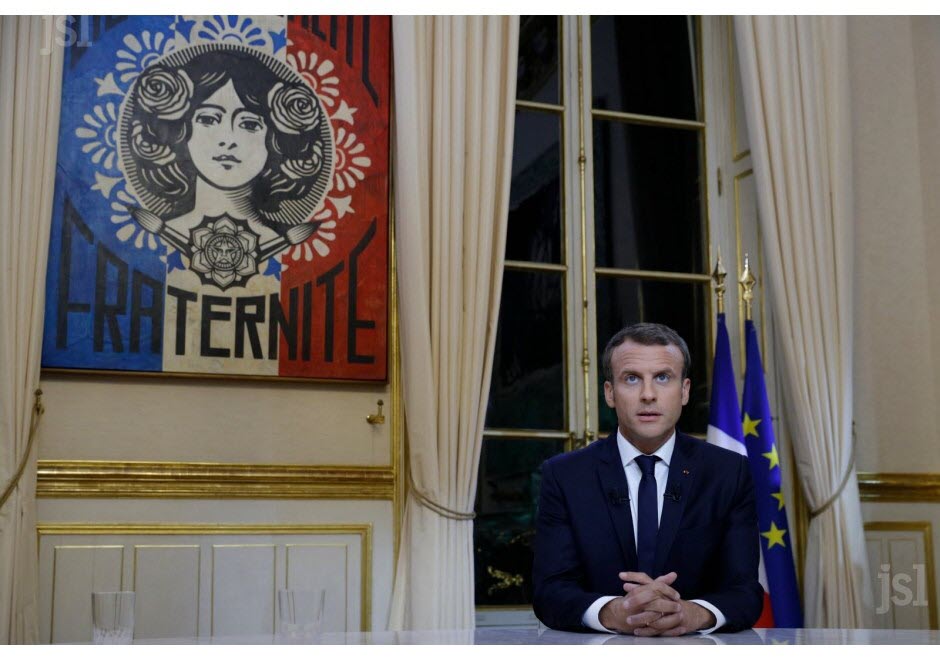
It was reported in the Greek press that the International Coordinating Committee Justice for Cyprus (PSEKA) will host an online event on September 30, to celebrate the 60th anniversary of the independence of the "Republic of Cyprus". According to the report, the keynote address at the event will be given by “Cyprus President Nicos Anastasiadis”. Guest speakers, among others, will be Ranking Democrat in the Senate Foreign Relations Committee US Senator Bob Menendez, House Foreign Affairs Committee Chairman Rep. Eliot Engel, House Middle East Subcommittee Chairman Rep. Ted Deutch, and American Jewish Committee CEO David Harris[1].
On this occasion, it is necessary to briefly remember the historical background of island of Cyprus, how the "Republic of Cyprus" was founded in 1960, and how it turned into a defunct entity in three years.
The island of Cyprus ruled by many civilizations throughout history. The last three are the Venetians, the Ottomans, and the British. The island was part of the Ottoman Empire between 1571 and 1878. In 1878, Britain assumed the administration of the island, although it remained de jure part of the Ottoman Empire until World War I. In 1914, Cyprus was annexed to the United Kingdom and was formally declared a Crown Colony later in 1925.
During the reign of the Ottoman Empire, the Greek Orthodox faith was restored, and the Archbishop was acknowledged as the leader of the Greek Orthodox community. In this period, the Greek Cypriots attained the right to administer their own affairs under the millet system of the Ottomans. However, the Greek War of Independence in 1821 gave rise to Greek nationalism in Cyprus, resulting in the revival of Hellenistic megali idea (great idea of reviving the extinct Byzantine Empire) that paved the way for the Greek Cypriot demand for enosis, which is union with Greece.
Pursuant to their demand for enosis, the Greek Cypriots, during the British rule continued with to riot and the Greek Orthodox Church organized a plebiscite in 1950. On 1 April 1955, the Greek Cypriot terrorist organization, EOKA (National Organization of Cypriot Fighters) was founded with the aim of advancing enosis through armed struggle and annexing Cyprus to Greece. However, the Turkish Cypriots, as co-inhabitants of the island, refused the annexation of the island to Greece and sought equal say over the future of Cyprus. In response to rightful request of Turkish Cypriots, the Greek Cypriot armed attacks against the British were also directed toward Turkish Cypriots and this unavoidably led to the deterioration of relations between the two communities. By 1959, the situation on the island became intolerable for both Turkish Cypriots and the British administration[2].
After inflicting much pain in the island to achieve enosis, the Greek government and the Greek Cypriots realized at the end that neither Turkey, the Turkish Cypriot people, the UK, nor the UN would consent to the union of Cyprus with Greece. Hence, a negotiated settlement remained the only way in the late 1950s in a world where colonies were becoming independent one after another. The UK expressed its readiness to transfer sovereignty jointly to the Turkish and Greek Cypriot peoples for the creation of an independent, partnership state in Cyprus. To achieve this, the UK insisted on retaining sovereign bases in Cyprus and safeguarding the rights of both Turkish and Greek Cypriots. Besides, the UK maintained that she should have the right to intervene along with Turkey and Greece, if there was an attempt to alter the agreed state of affairs.
Against this background, talks were initiated between the Turkish and Greek governments, with the knowledge of the two sides in Cyprus. These talks led to the Zurich Agreement of 1959 which soon afterwards was endorsed in London between five parties, namely, Turkey, Greece, the UK, Dr. Fazıl Küçük on behalf of the Turkish Cypriot people, and Archbishop Makarios III on behalf of the Greek Cypriot people (see photo above). On this basis, the constitution of 1960 was negotiated, and the Treaties of Guarantee, Alliance and Establishment were concluded. When the five-party Treaties were signed, the UK transferred sovereignty to the two peoples on the island. Thus, the Republic of Cyprus came into being as an independent partnership state in 1960.
It was hoped that the Turkish Cypriots and the Greek Cypriots, as the two peoples of the island and new partners, would be able to live peacefully together. But this expectation was not fulfilled. The Greek Cypriots and Greece did not give up their ambitions and designs. They regarded independence merely as a springboard for annexation of the island to Greece. The Greek Cypriot leadership continued to campaign for this objective and sought to unlawfully bring about constitutional amendments which would negate the partnership status of the Turkish Cypriots.
Since the pursuit of such goals were prohibited under the constitution and the guarantee system of 1960, they could only be achieved by defying and destroying the legitimate order. This meant the use of force to overtake the partnership state and to force the other partner into submission. The Greek Cypriot and Greek designs and the use of force to achieve their unlawful aims led to the collapse of the partnership system. As a result of the Greek Cypriot armed attacks, the bi-national Republic, as envisaged in the international treaties, ceased to exist in December 1963. It should be mentioned in this context that many Turkish Cypriot civilians lost their lives during the tragic events of 1963. The breakaway Greek Cypriot wing of the partnership state usurped the title of "Government of Cyprus"[3].
In a very recent article published in the Cyprus Mail newspaper, which is in circulation in the Greek Administration of Southern Cyprus, penned by Alper Ali Riza (a Queen’s counsel in the UK and a retired part-time judge), it was stated that “it is no secret that Makarios cherry picked the constitution for amendment with suspect haste after independence”. The author of the article states that after all these developments “Republic of Cyprus became and remains exclusively Greek Cypriot”[4].
As the foregoing reveals, the "Republic of Cyprus" was founded as a partnership state. This partnership was destroyed by the Greek Cypriots and the title of the “Republic of Cyprus” was usurped by one of the partners, namely by Greek Cypriots. Since then, they claim that they constitute “the Republic of Cyprus”, which is in fact legally ceased to exist in 1963 after expulsion of the other partner from the state, namely Turkish Cypriots. In this context, the state whose 60th anniversary is sought to be celebrated by the Greek Cypriots is not the "Republic of Cyprus", but "the defunct Republic of Cyprus”.
*Photo: https://cyprus-mail.com
[1] “Special Online Event to Celebrate Cyprus Independence on September 30,” Kathimerini, September 25, 2020, sec. Community, https://www.ekathimerini.com/257385/article/ekathimerini/community/special-online-event-to-celebrate-cyprus-independence-on-september-30.
[2] “Historical Background,” Online Portal, Deputy Prime Minister and Minister of Foreign Affairs Turkish Republic of Northern Cyprus, 2011, https://mfa.gov.ct.tr/cyprus-negotiation-process/historical-background/.
[3] “Why and How Did the 1960 Order Collapse?,” Online Portal, Republic of Turkey Ministry of Foreign Affairs, 2011, http://www.mfa.gov.tr/why-and-how-did-the-1960-order-collapse_.en.mfa.
[4] Alper Ali Rıza, “Happy 60th Birthday to Cyprus in Advance,” Cyprus Mail, September 27, 2020, sec. Opinion, https://cyprus-mail.com/2020/09/27/happy-60th-birthday-to-cyprus-in-advance/.
© 2009-2025 Center for Eurasian Studies (AVİM) All Rights Reserved
No comments yet.
-
 ARE THE SEEDS OF HOSTILITY AGAINST TURKS BEING SOWN IN AUSTRALIA?
ARE THE SEEDS OF HOSTILITY AGAINST TURKS BEING SOWN IN AUSTRALIA?
Teoman Ertuğrul TULUN 10.05.2019 -
 MERKEL’S VISIT TO SOUTH CAUCASUS: ARTICULATION OF GERMAN NATIONAL INTERESTS IN THE REGION AND LIKELY PREDICAMENTS
MERKEL’S VISIT TO SOUTH CAUCASUS: ARTICULATION OF GERMAN NATIONAL INTERESTS IN THE REGION AND LIKELY PREDICAMENTS
Teoman Ertuğrul TULUN 05.09.2018 -
 BALKANS 2016: INTEGRATION EFFORTS IN A TIME OF UNCERTAINITY
BALKANS 2016: INTEGRATION EFFORTS IN A TIME OF UNCERTAINITY
Teoman Ertuğrul TULUN 09.01.2017 -
 IS GREECE A CHINA’S “TROJAN HORSE” OR “DRAGON’S HEAD” IN EUROPE?
IS GREECE A CHINA’S “TROJAN HORSE” OR “DRAGON’S HEAD” IN EUROPE?
Teoman Ertuğrul TULUN 15.11.2019 -
 TURKISH MIGRANTS AND THEIR CONTRIBUTION TO TECHNOLOGICAL DEVELOPMENT
TURKISH MIGRANTS AND THEIR CONTRIBUTION TO TECHNOLOGICAL DEVELOPMENT
Teoman Ertuğrul TULUN 24.03.2021
-
 AFTER BREXIT: THE FOOTSTEPS OF A TRULY CAROLINGIAN EUROPEAN UNION
AFTER BREXIT: THE FOOTSTEPS OF A TRULY CAROLINGIAN EUROPEAN UNION
Teoman Ertuğrul TULUN 15.03.2019 -
 THE FIGHT OF FRANCE AGAINST FRANCE AND THE FUTURE OF EUROPE
THE FIGHT OF FRANCE AGAINST FRANCE AND THE FUTURE OF EUROPE
Turgut Kerem TUNCEL 22.02.2019 -
 THE FOUNDATIONAL PILLARS OF STABILITY IN THE BLACK SEA
THE FOUNDATIONAL PILLARS OF STABILITY IN THE BLACK SEA
Teoman Ertuğrul TULUN 16.04.2025 -
 THE BATTLE TO CONTROL THE NARRATIVE OVER KARABAKH: ARMENIAN CIVILIAN SAFETY VS. AZERBAIJANI STATE SOVEREIGNTY
THE BATTLE TO CONTROL THE NARRATIVE OVER KARABAKH: ARMENIAN CIVILIAN SAFETY VS. AZERBAIJANI STATE SOVEREIGNTY
Mehmet Oğuzhan TULUN 06.10.2023 -
 POSSIBLE EFFECTS OF A RUSSIAN-CHINESE JOINT SWIFT SYSTEM ON THE EURASIAN ECONOMY AND THE WORLD TRADE SYSTEM
POSSIBLE EFFECTS OF A RUSSIAN-CHINESE JOINT SWIFT SYSTEM ON THE EURASIAN ECONOMY AND THE WORLD TRADE SYSTEM
Teoman Ertuğrul TULUN 23.12.2021
-
25.01.2016
THE ARMENIAN QUESTION - BASIC KNOWLEDGE AND DOCUMENTATION -
12.06.2024
THE TRUTH WILL OUT -
27.03.2023
RADİKAL ERMENİ UNSURLARCA GERÇEKLEŞTİRİLEN MEZALİMLER VE VANDALİZM -
17.03.2023
PATRIOTISM PERVERTED -
23.02.2023
MEN ARE LIKE THAT -
03.02.2023
BAKÜ-TİFLİS-CEYHAN BORU HATTININ YAŞANAN TARİHİ -
16.12.2022
INTERNATIONAL SCHOLARS ON THE EVENTS OF 1915 -
07.12.2022
FAKE PHOTOS AND THE ARMENIAN PROPAGANDA -
07.12.2022
ERMENİ PROPAGANDASI VE SAHTE RESİMLER -
01.01.2022
A Letter From Japan - Strategically Mum: The Silence of the Armenians -
01.01.2022
Japonya'dan Bir Mektup - Stratejik Suskunluk: Ermenilerin Sessizliği -
03.06.2020
Anastas Mikoyan: Confessions of an Armenian Bolshevik -
08.04.2020
Sovyet Sonrası Ukrayna’da Devlet, Toplum ve Siyaset - Değişen Dinamikler, Dönüşen Kimlikler -
12.06.2018
Ermeni Sorunuyla İlgili İngiliz Belgeleri (1912-1923) - British Documents on Armenian Question (1912-1923) -
02.12.2016
Turkish-Russian Academics: A Historical Study on the Caucasus -
01.07.2016
Gürcistan'daki Müslüman Topluluklar: Azınlık Hakları, Kimlik, Siyaset -
10.03.2016
Armenian Diaspora: Diaspora, State and the Imagination of the Republic of Armenia -
24.01.2016
ERMENİ SORUNU - TEMEL BİLGİ VE BELGELER (2. BASKI)
-
AVİM Conference Hall 24.01.2023
CONFERENCE TITLED “HUNGARY’S PERSPECTIVES ON THE TURKIC WORLD"









